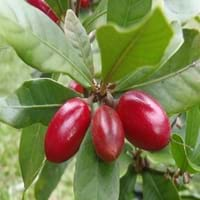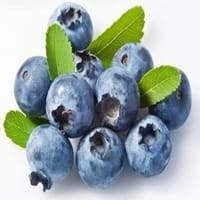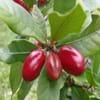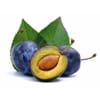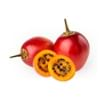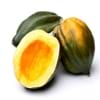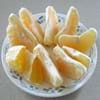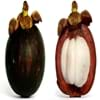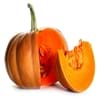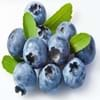Health Benefits
Good for diabetics, Improves well-being, Miraculin/miracle fruit makes sour things taste sweet
Cancer prevention, Cures gastro-intestinal troubles, Improves night vision, Improves stomach health, Prevents diabetes, Prevents high blood pressure, Reduces blood circulation problems
General Benefits
Has taste modifying effect
Fights against infections, Helps in weight loss, Prevents blood clotting in vessels, Treatment of urinary tract infections
Skin Benefits
NA
Anti-aging benefits, Nourishes skin, Protects against skin damage
Hair Benefits
NA
Prevents hair loss
Allergy Symptoms
Itching, Skin rash
Not Available
Side Effects
Changes taste of food eaten after this fruit, Coagulation
Decrease in blood sugar levels, Diarrhoea, Dizziness, Headache, Internal bleeding, Stomach pain
Best Time to Eat
As a snack in the late afternoon, Eat the fresh ones, avoid mixing with any other foods, don't eat after meal., Morning time (before lunch)
As a snack in the late afternoon, Don't consume at night and before bed, Eat the fresh ones, avoid mixing with any other foods, don't eat after meal., Morning time (before lunch)
Protein to Carb Ratio
Not Available
Vitamin A (Retinol)
Not Available
Vitamin B1 (Thiamin)
Not Available
Vitamin B2 (Riboflavin)
Not Available
Vitamin B3 (Niacin)
Not Available
Vitamin B5 (Pantothenic Acid)
Not Available
Vitamin B6 (Pyridoxin)
Not Available
Vitamin B9 (Folic acid)
Not Available
Vitamin C (Ascorbic Acid)
Vitamin K (Phyllochinone)
Not Available
Lutein+Zeaxanthin
Not Available
Water Content
Not Available
Calories in Fresh Fruit with Peel
Not Available
Calories in Fresh Fruit without Peel
Not Available
Not Available
Calories in Frozen Form
Not Available
Not Available
Calories in Dried Form
Not Available
Not Available
Calories in Canned Form
Not Available
Not Available
Calories in Juice
Not Available
Calories in Jam
Not Available
Calories in Pie
Not Available
Varieties
Gymnema Sylvestre and Thaumatococcus Daniellii
Dwarf bilberry, Piper, bog blueberry, Northern bilberry, Mountain bilberry and Oval-leaved bilberry
Color
Dark red
Dark purple
Inside Color
Greyish-white
Light Green
Origin
West Africa
Unknown
Soil Type
Well-drained
Moist, Well-aerated
Climatic Conditions
Rainfall
Cold
Facts about
- The name 'Miracle' because of the magical experience you get after eating it.
- When you have lemon after eating this fruit, it tastes sweet as if it is added with sugar.
- It is also used as natural sweetener.
- Bilberries are used in manufacturing of alcoholic drinks.
- They are used to improve aromas of sorbets.
- The green extract of it's leaves is used in textile industry as natural dye.
Other Countries
NA
Denmark, Finland, Iceland, Sweden
Top Importer
Not Available
United States of America
Top Exporter
United States of America
Chile
Botanical Name
Synsepalum Dulcificum
Vaccinium myrtillus
Synonym
Miracle Berry, Miraculous Berry and Sweet Berry
blaeberry, whinberry, European blueberry, whortleberry
Subkingdom
Tracheobionta
Tracheobionta
Division
NA
Magnoliophyta
Subclass
Asteridae
Dillenhidae
Family
Sapotaceae
Ericaceae
Genus
Synsepalum
Vaccinium
Species
S. dulcificum
Vaccinium myrtillus
Generic Group
Not Available
Heath
Compare Miracle fruit and Bilberry
It is important compare Miracle fruit and Bilberry as both the fruits have a different nutritional value. Their comparison can be done on the basis of their vitamin and mineral content, calories, benefits as well as characteristics, making it easier for us to choose the best fruit for our diet. Their general health benefits are as follows:
Miracle fruit Benefits: has taste modifying effect.
Bilberry Benefits: fights against infections, helps in weight loss, prevents blood clotting in vessels and treatment of urinary tract infections.
Fruits are also used as a remedy for various hair problems. The hair benefits of Miracle fruit are: na and hair benefits of Bilberry are: prevents hair loss. Some fruits are known to cause allergic reactions. The allergy symptoms of first fruit are: itching and skin rash and the symptoms of second fruit are: not available. Get sorted Miracle fruit vs Bilberry comparison with the help of fruit comparison tool by fruitvs.com.
